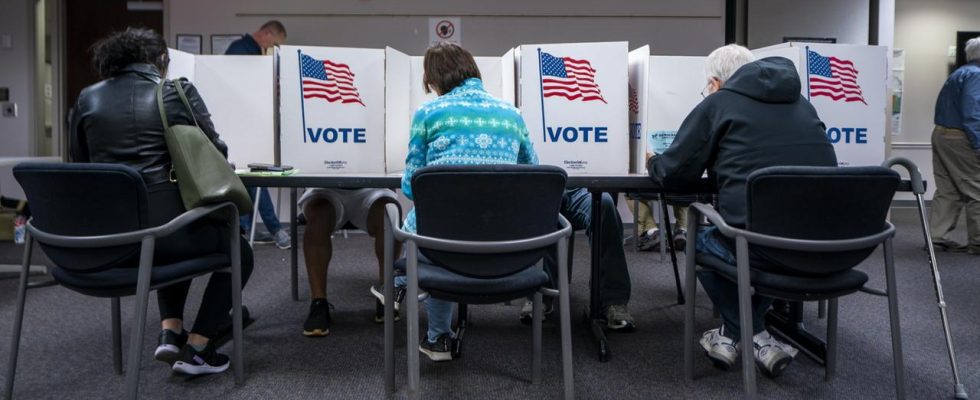Ohio, Virginia, Kentucky: Democrats have achieved several successes in voting in these US states. Voters were particularly moved by the heated debate surrounding the issue of abortion. The party is likely to continue to rely on this.
Last year, the US Supreme Court overturned the existing right to abortion and sent it back to the states. The Republicans viewed this as a great success at the time. But the mood in the country seems to be different, as was evident yesterday in Ohio.
56 percent of voters there voted to enshrine the right to, as it is called, “reproductive freedom” in the constitution. This primarily means the right to abortion, but also the choice of contraceptives or artificial insemination. “Abortion is part of health care. Access to abortion is the law in Ohio,” said Lauren Blauvelt of Planned Parenthood, a family planning organization that also offers abortions.
Lots of Trump supporters in Ohio
The result is surprisingly clear. Ohio is a very conservative state; former US President Donald Trump has many supporters here. And Governor Mike DeWine, also a Republican, tried to mobilize his voter groups on Fox News right up to the end: This is a radical proposal, regardless of whether someone is for or against abortion, it clearly goes too far, said DeWine.
Republicans in Ohio want to ban abortions beginning in the sixth week of pregnancy. They have now failed. Abortions remain legal in Ohio until the embryo can live outside the womb, around 22 to 24 weeks.
Bearers of hope Youngkin fails
In Virginia, Governor Glen Youngkin, a Republican, wanted to test a compromise: abortions should only be banned from the 15th week of pregnancy, a regulation that is supported by a majority of Americans in polls. Youngkin argued during the election campaign that there was a choice between “no limits” and “reasonable limits” on the ballot paper. He believes Virginia can communicate through “reason.”
But things turned out differently: Yesterday, all 140 seats in the Virginia House of Representatives and Senate were voted on. The Democrats retained their majority in the Senate and captured the House of Representatives. Virginia remains the only southern state where abortions are still possible up to the 26th week. And Youngkin has lost his status as the Republican hopeful. He had repeatedly been treated as a secret weapon against Donald Trump and was perhaps expected to enter the presidential election campaign at a late stage. After the current defeat, that should now be over.
Virginia Governor Youngkin was considered a beacon of hope, but his reputation now appears to be gone.
Biden’s weakness remains his age
The Democrats also celebrated in deeply conservative Kentucky: their governor Andy Beshear was re-elected, even though the Republicans had sent a strong opponent into the race. But this was also about abortion: In Kentucky, abortions are generally prohibited, with a few exceptions. The Democratic governor vetoed the bill in vain. But his resistance was apparently well received by voters.
Tuesday’s results confirm a trend. Whenever there was a direct or indirect vote on abortion in the states, the opponents lost – even in conservative states. This is a market of ideas, said David Urban, a former campaign advisor to Donald Trump, on CNN, “if your idea isn’t bought, it’s best to think of a new one.”
For the Democrats, on the other hand, it should be clear: they will also put the right to abortion at the forefront of the 2024 election campaign. The only question is whether it is enough to outweigh the strongest reservation against President Joe Biden: his age. Almost 80 percent of voters do not trust him to rule for another four years. In current surveys, the 80-year-old Biden is sometimes well behind the 77-year-old Trump in important swing states.

